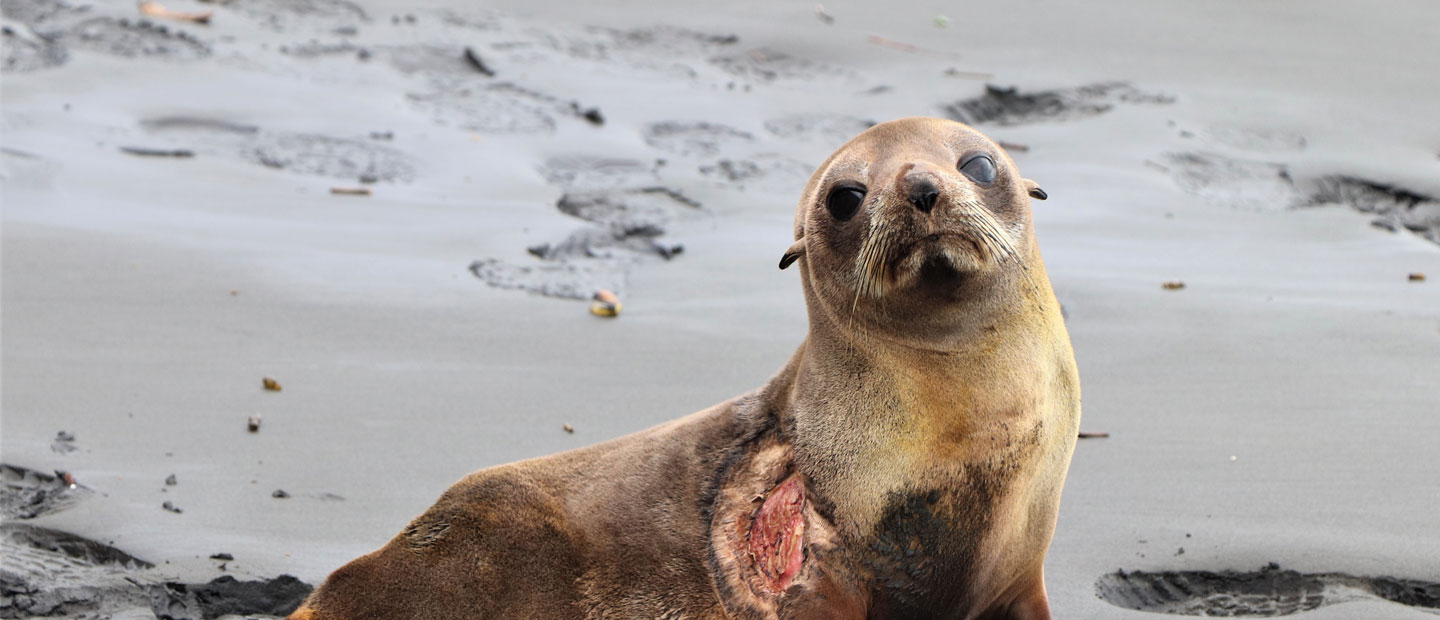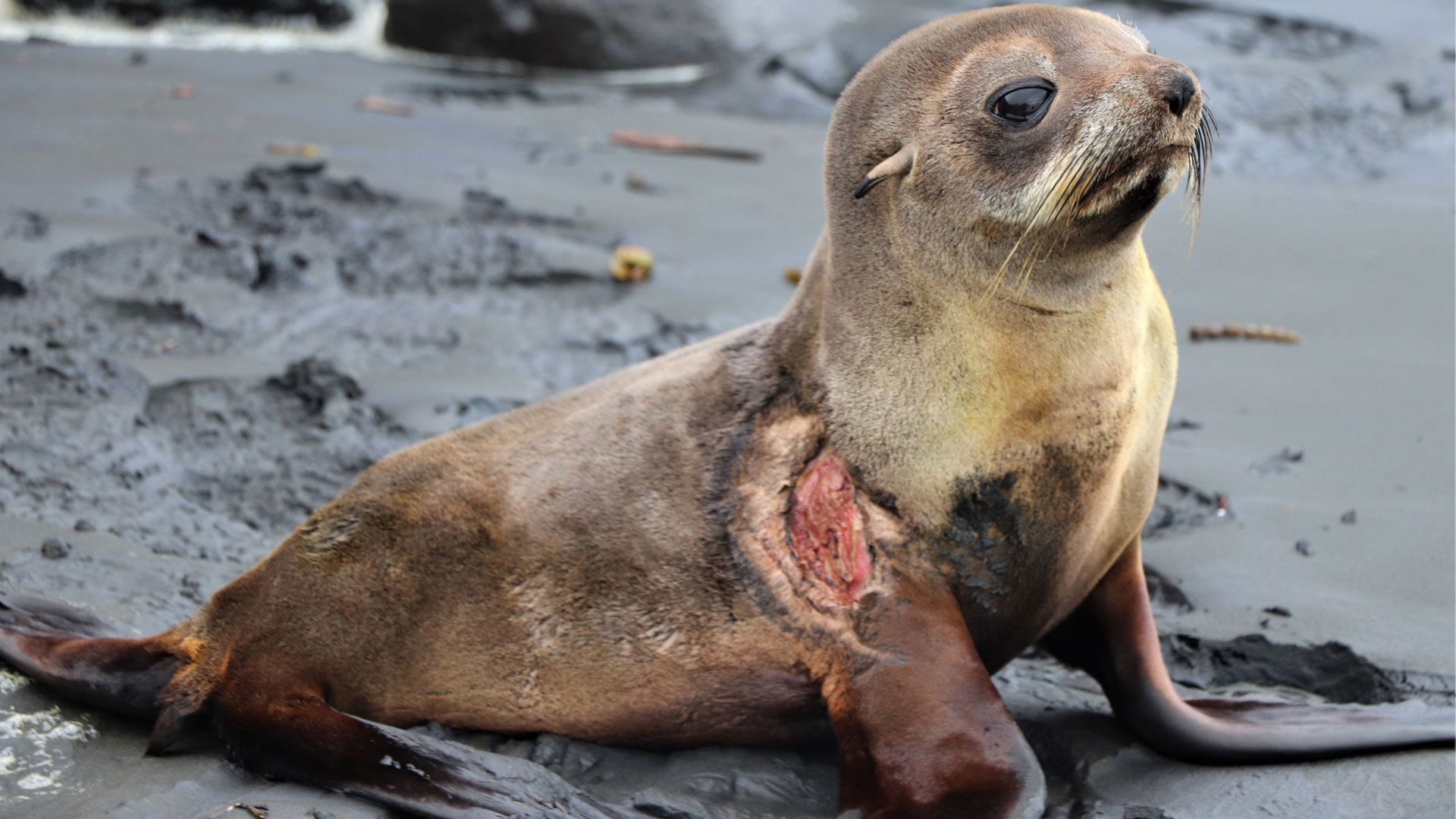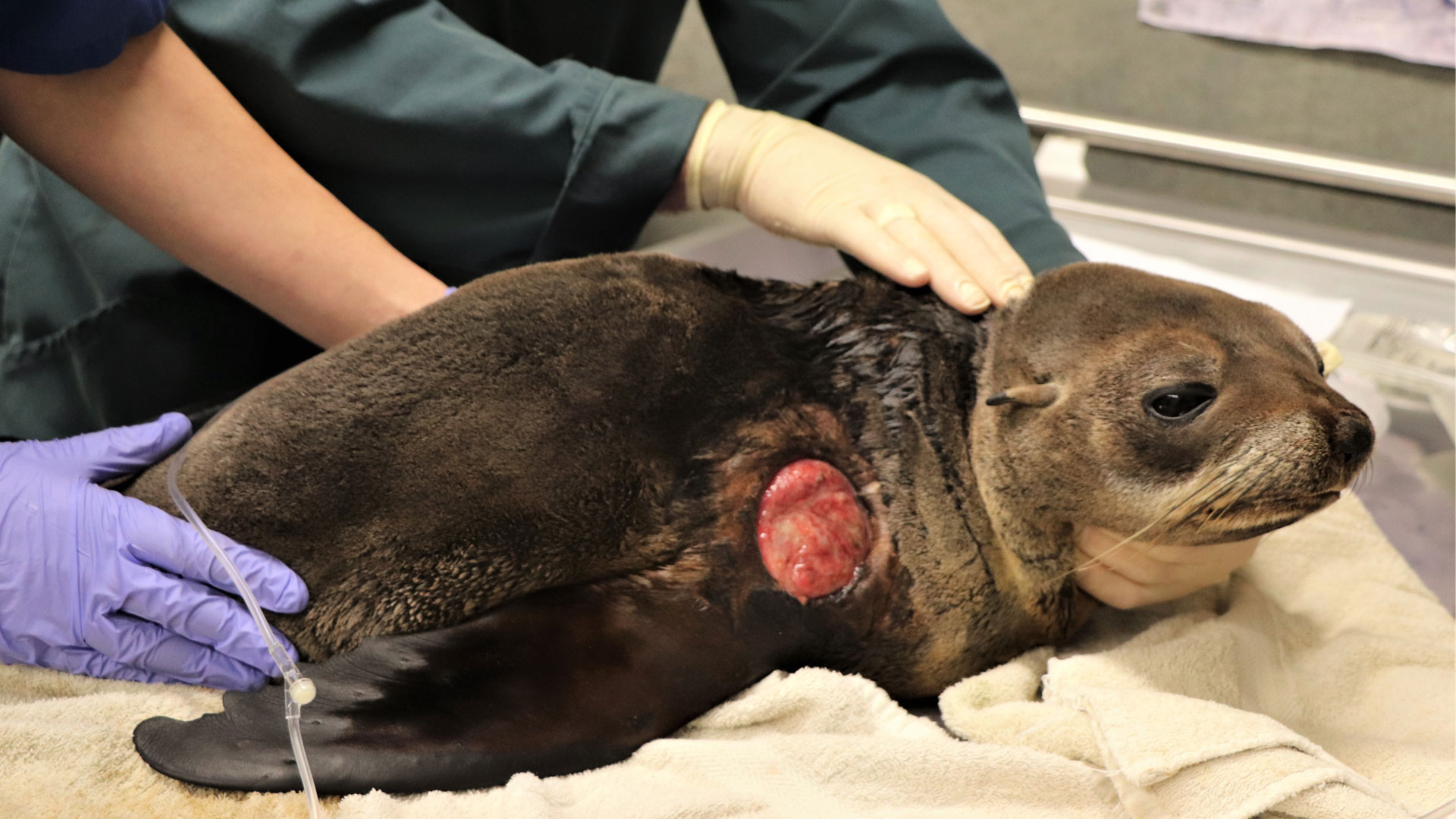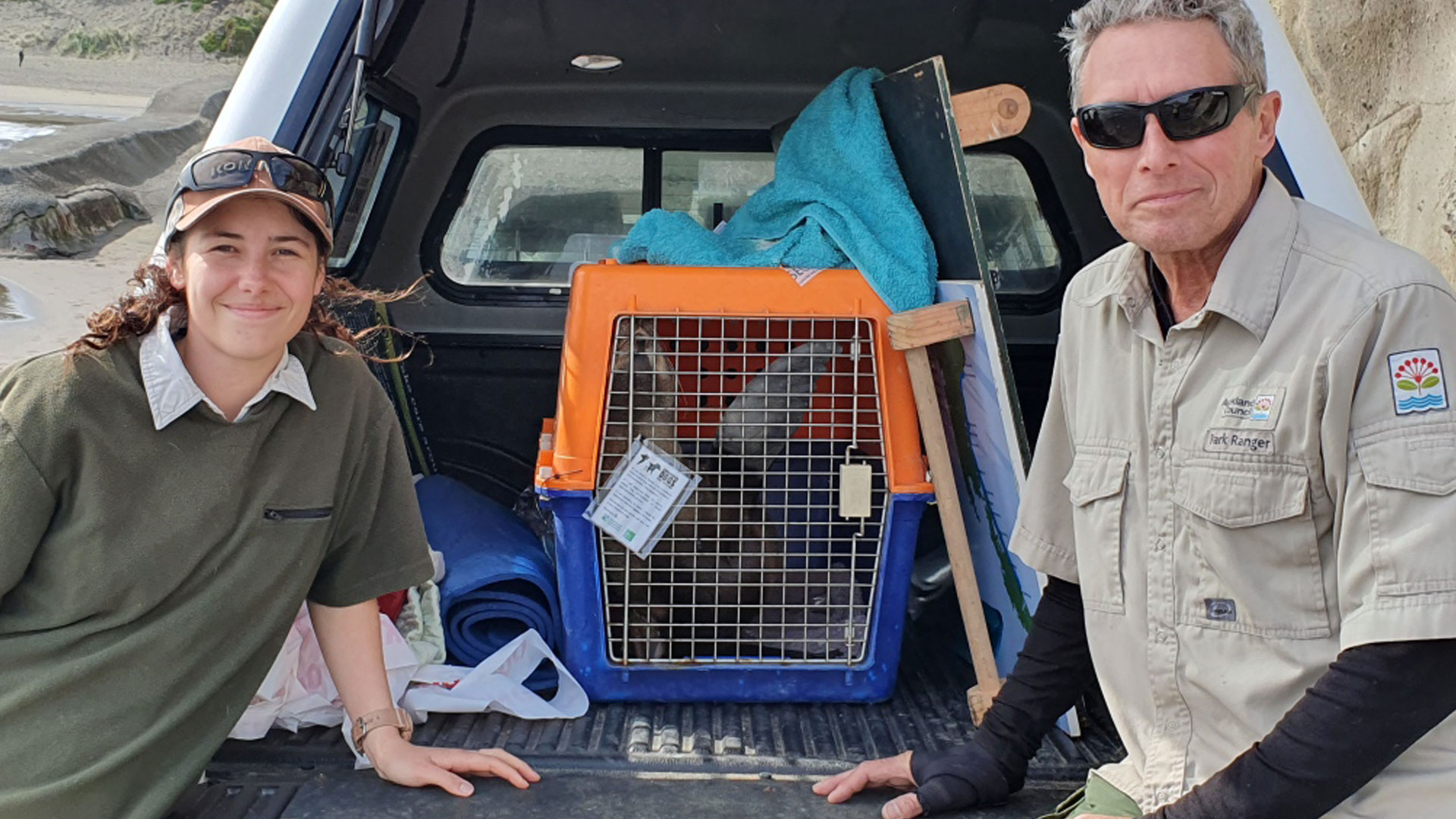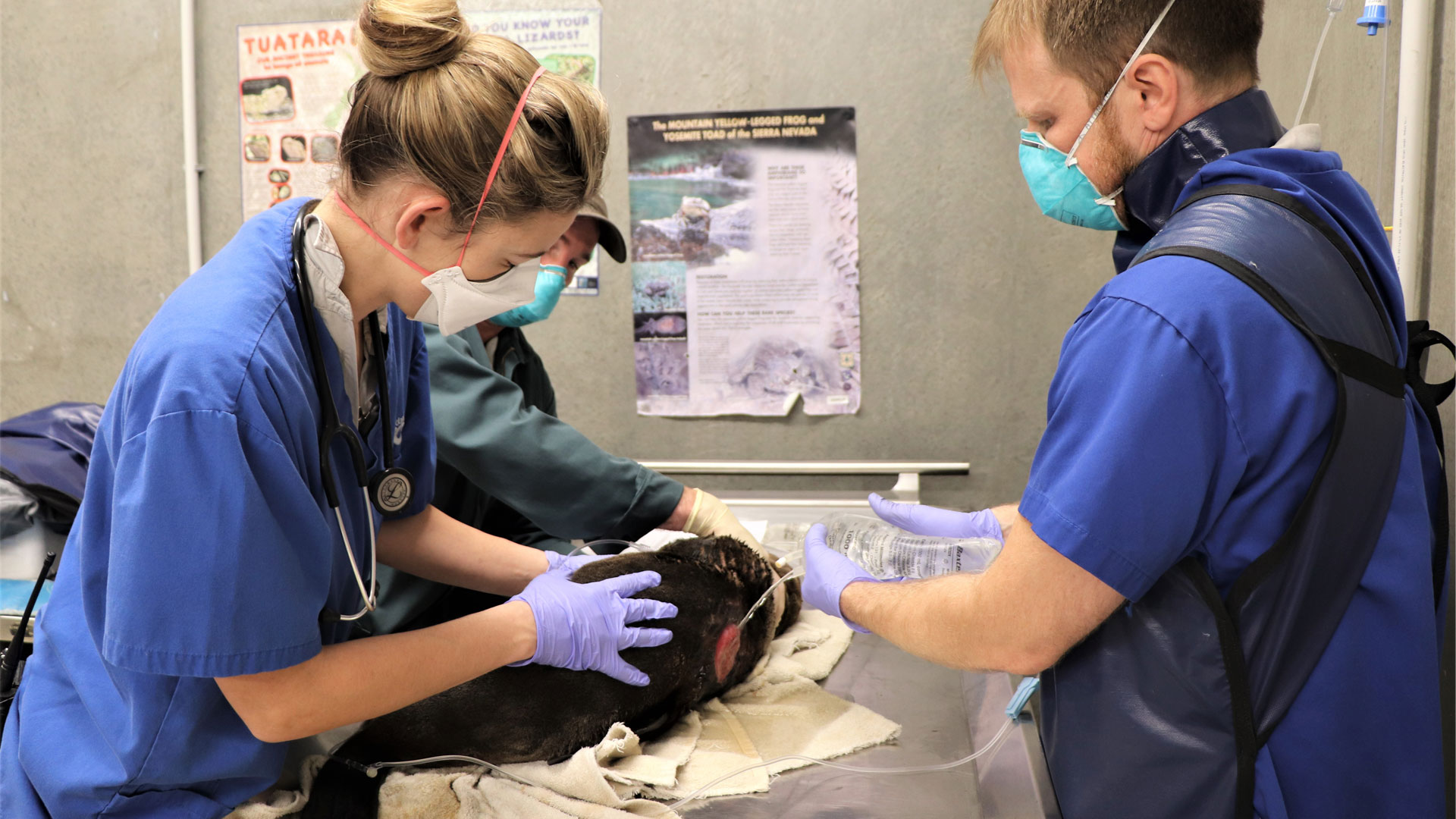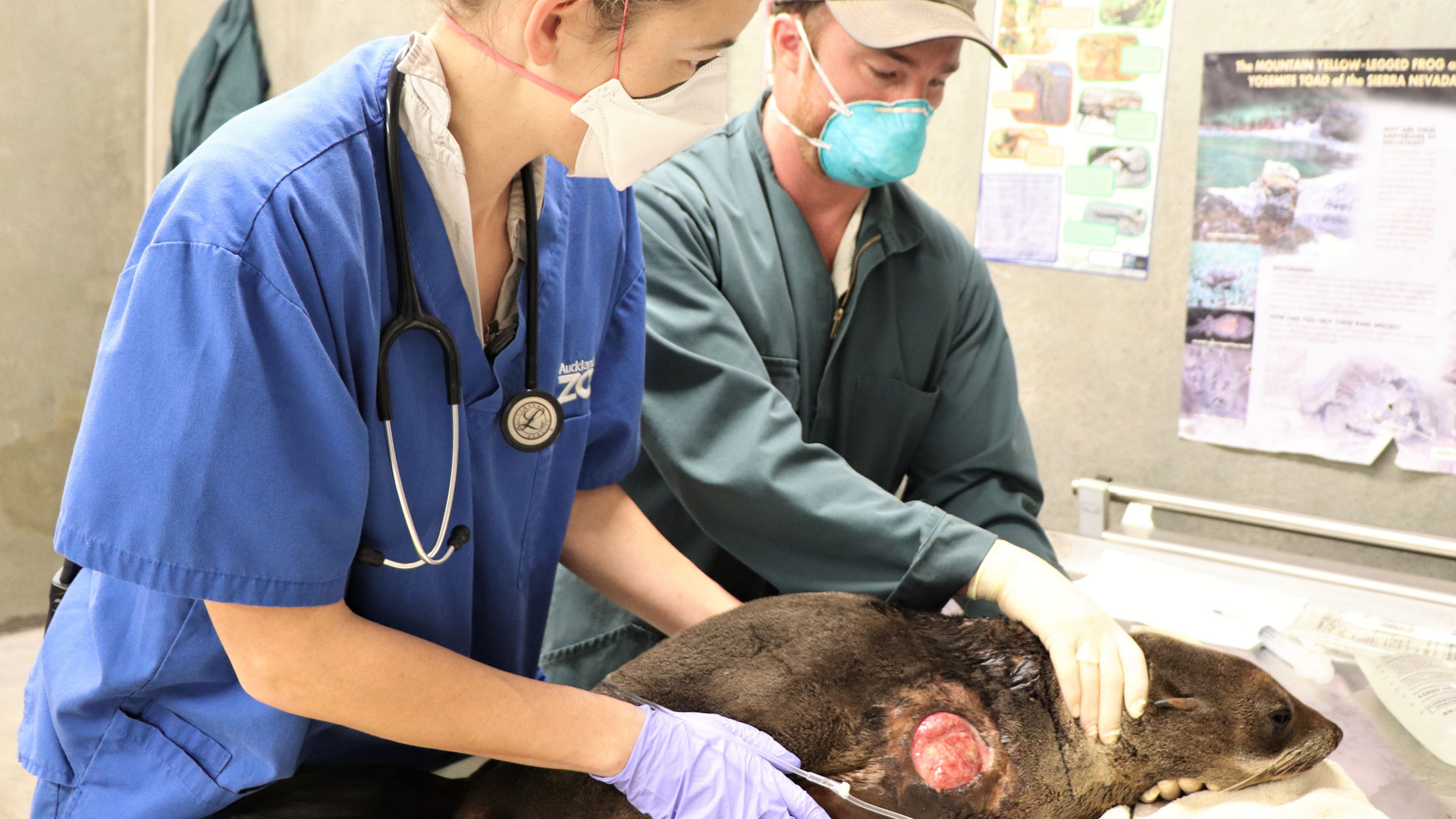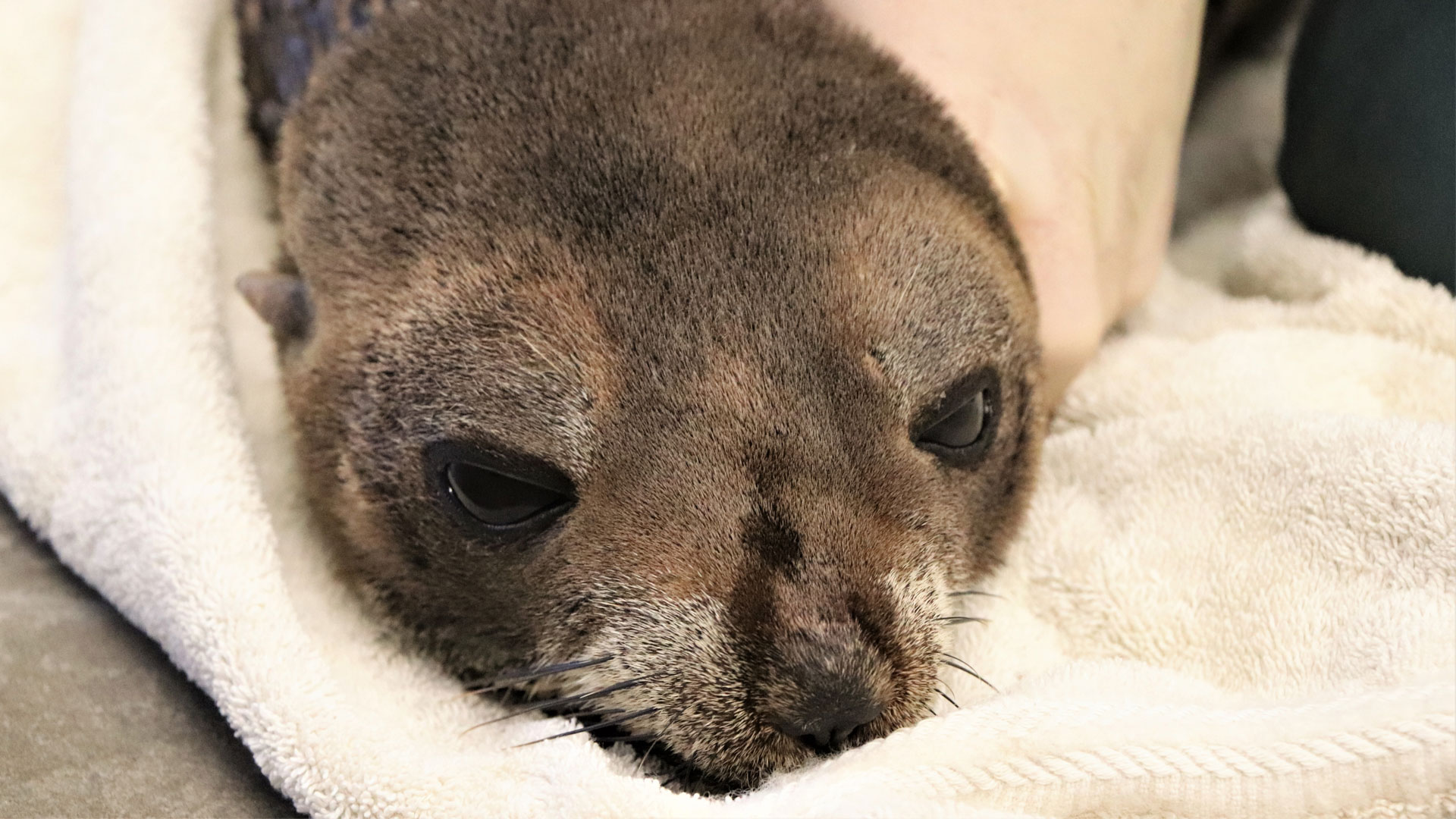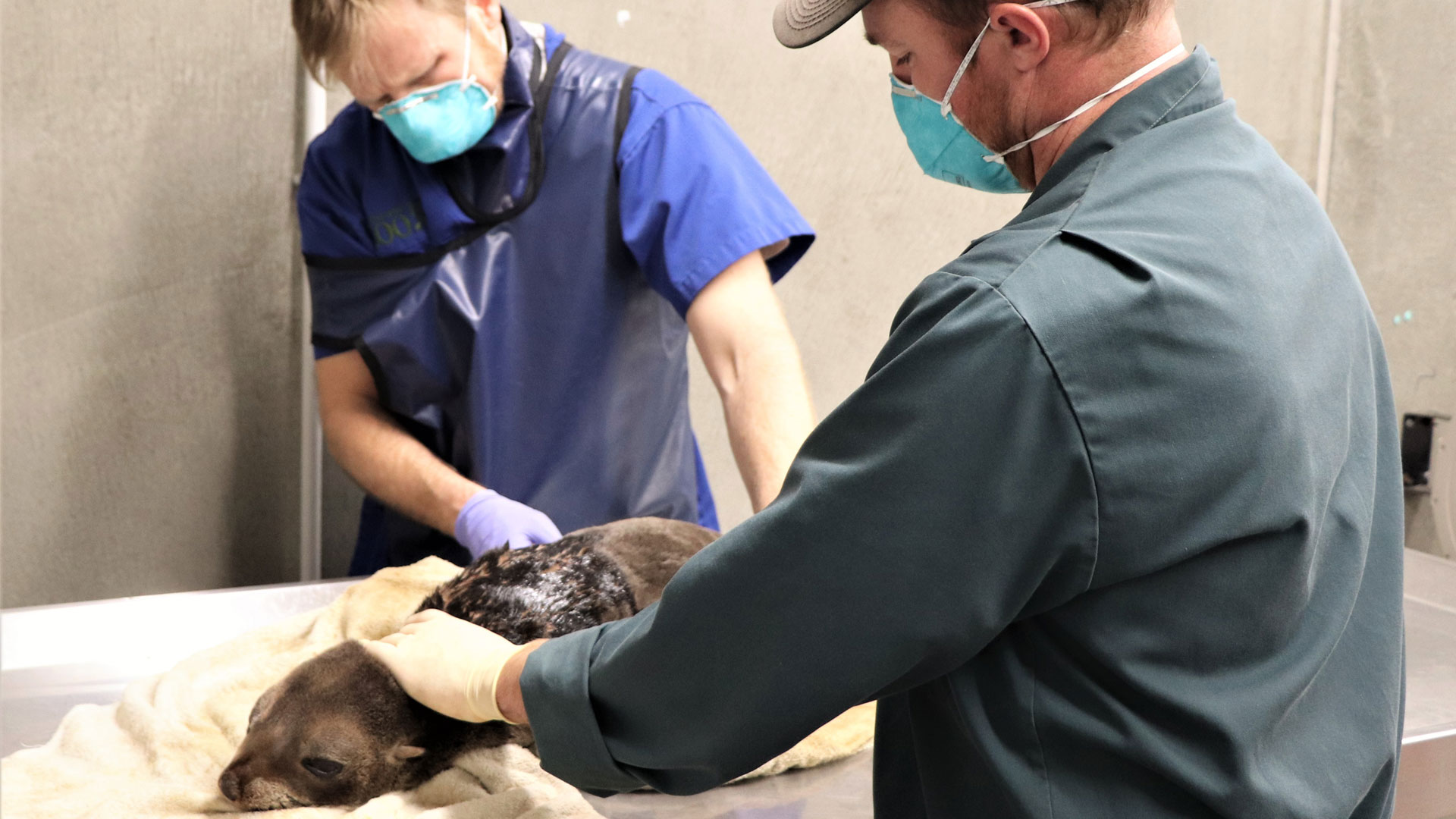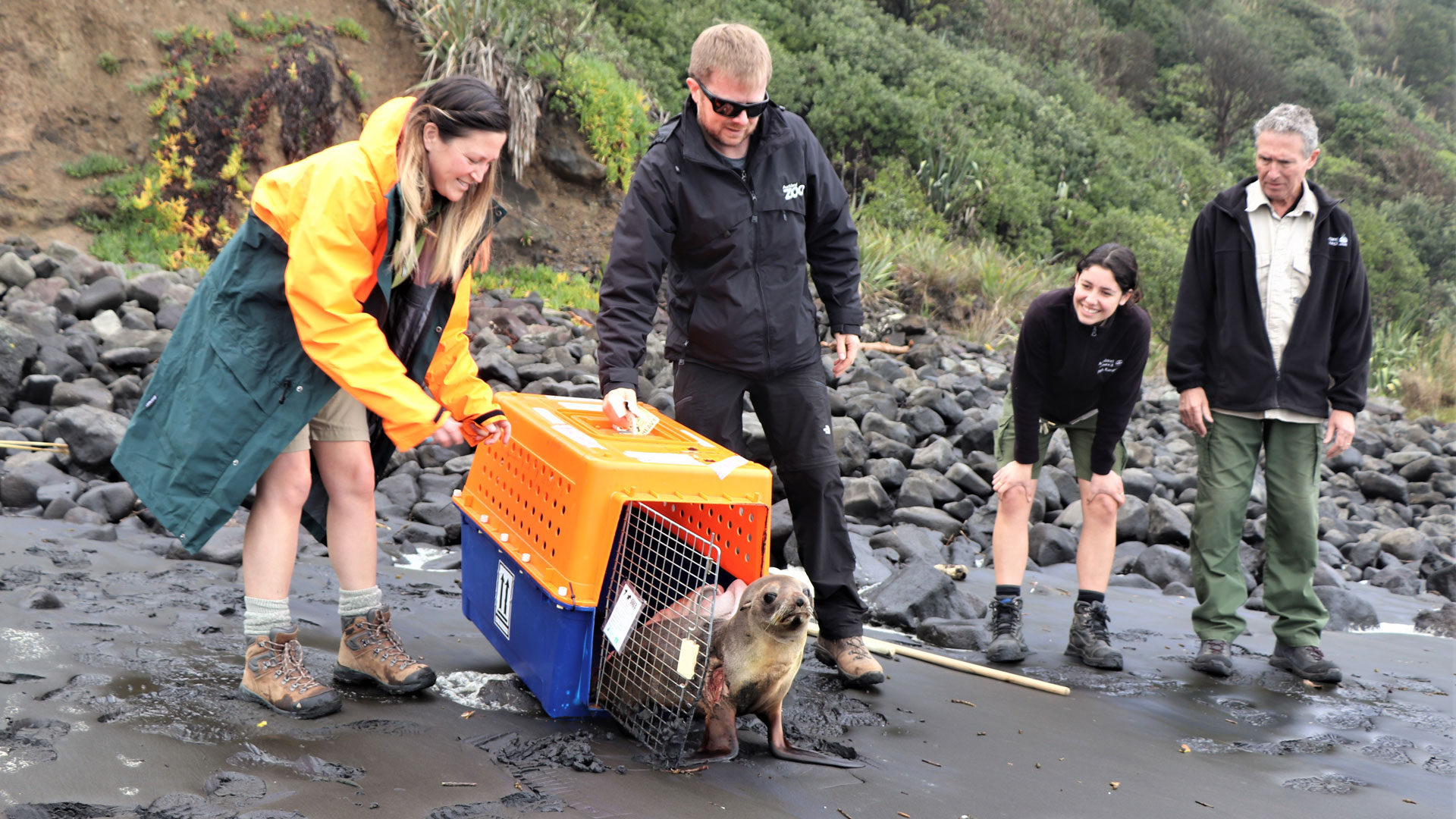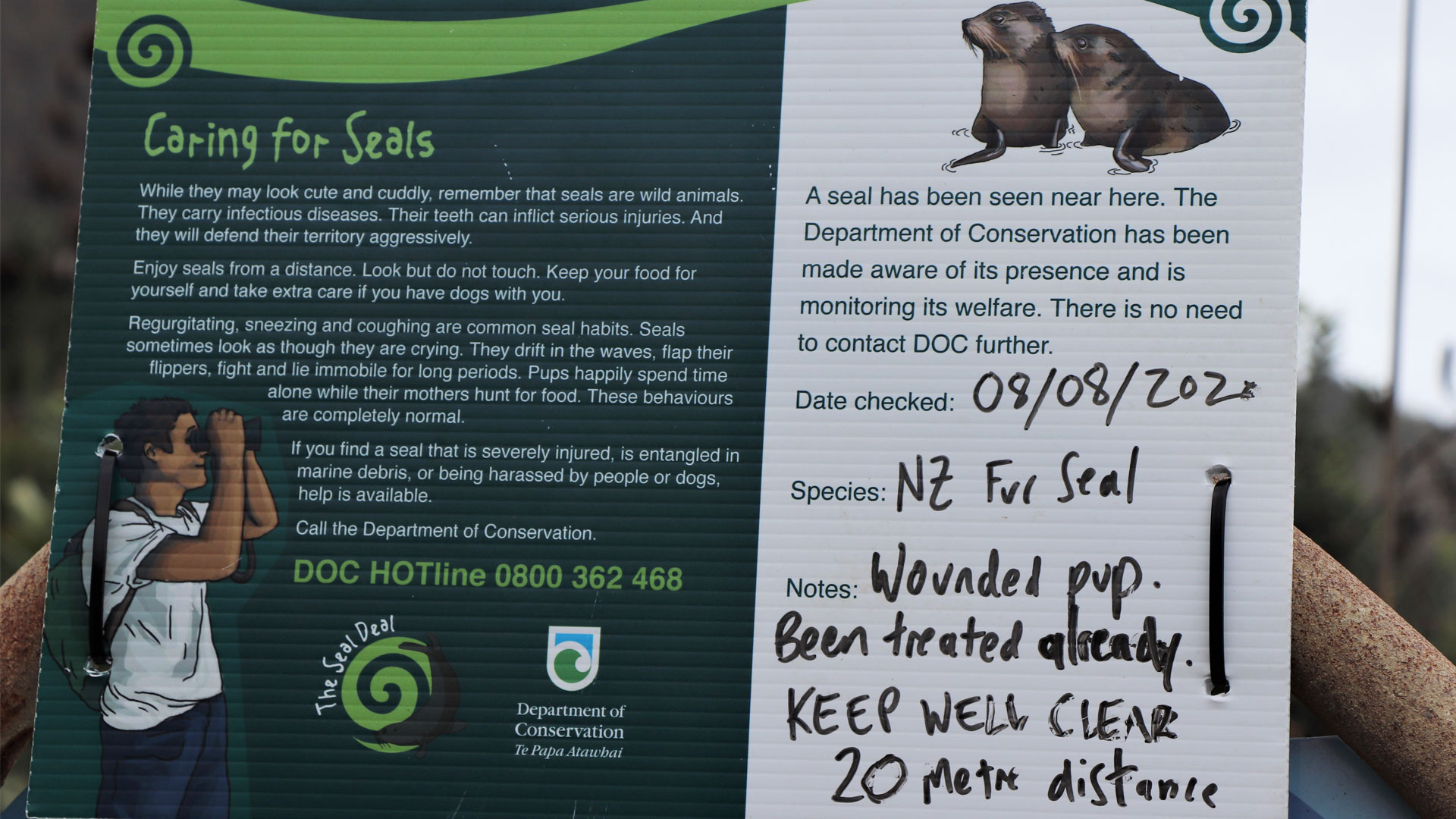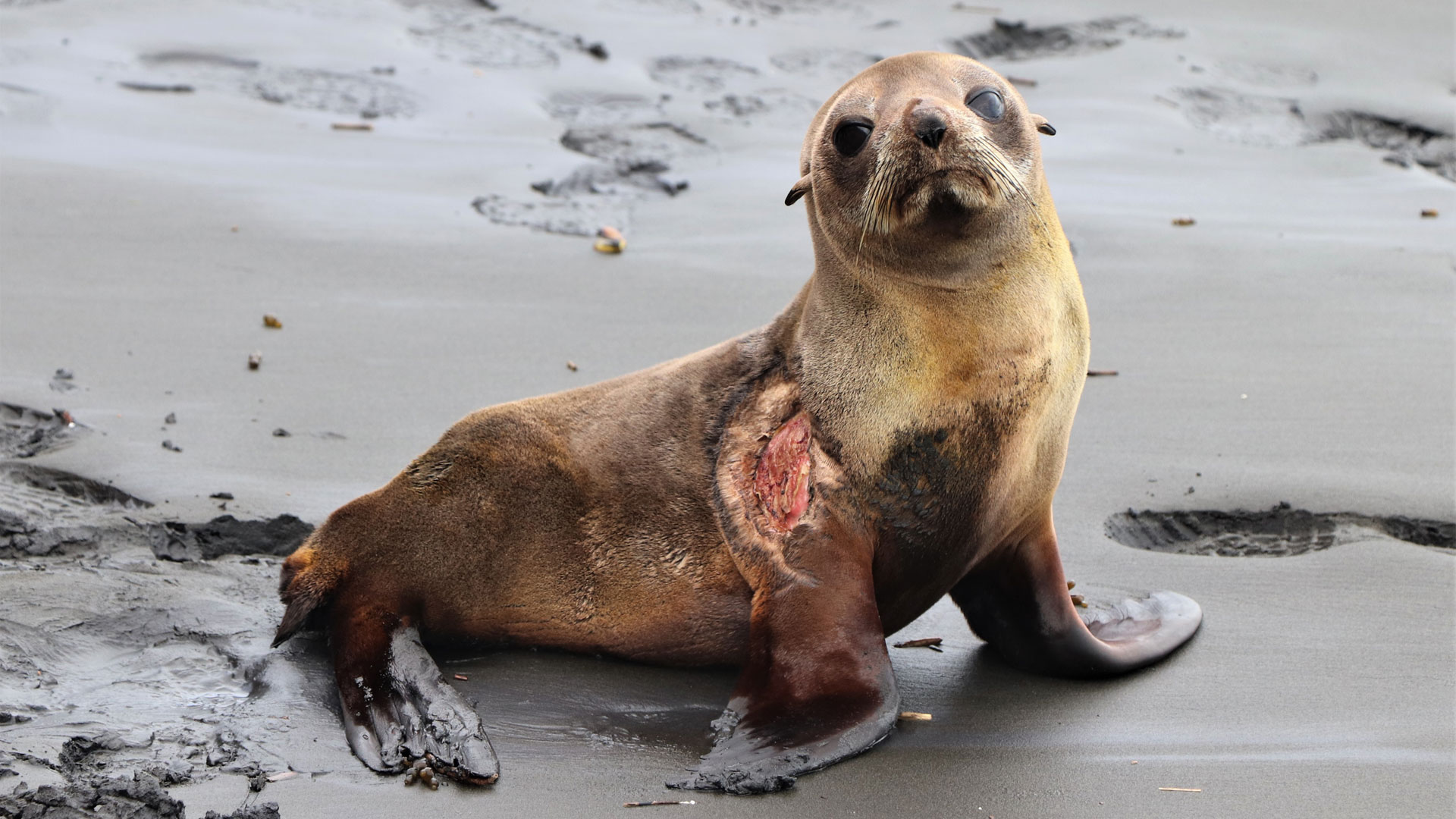Auckland Zoo was delighted to be part of a team effort to help a young kekeno (NZ fur seal) pup bitten and injured by a cookiecutter shark recently, that we’re happy say is now back in the wild.
The young pup, that had a perfectly circular chunk of skin bitten off just above its right shoulder joint (trademark cookiecutter), was discovered hauled up under public stairs at Muriwai beach in early August by Auckland Council park rangers. She subsequently moved further up on to one of the public platforms and was brought into the Zoo’s vet hospital last Thursday by Department of Conservation (DOC) Biodiversity Gabrielle Goodin.
“This pup was about nine months old – the age these seals are learning to fend for themselves, so they can sometimes get into a bit of strife like this when out at sea fishing ,” says Auckland Zoo’s Veterinary Services Manager, Dr James Chatterton.


